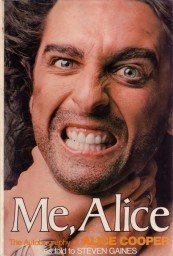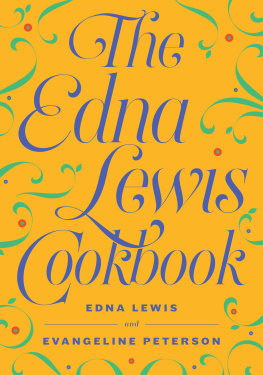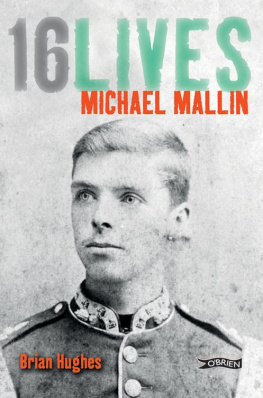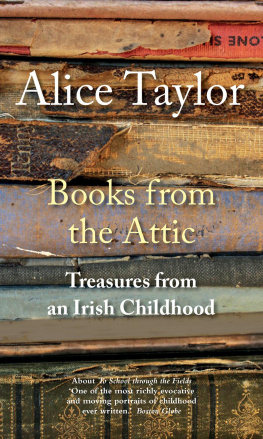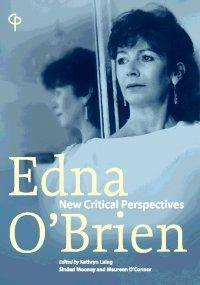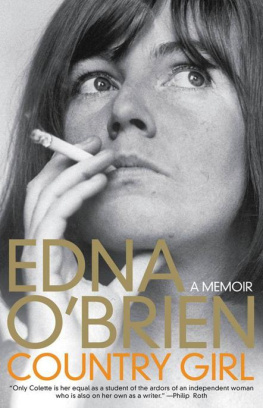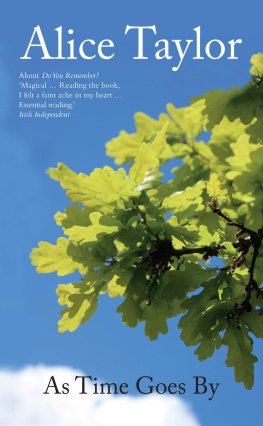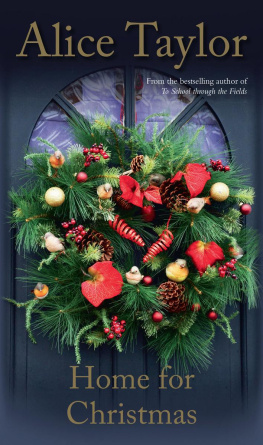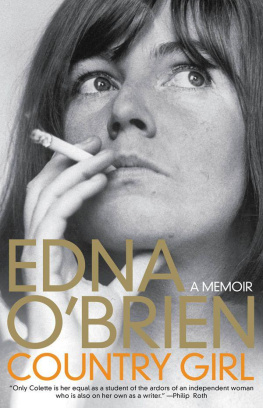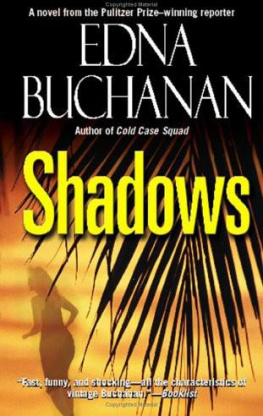Kersnowski Alice Hughes - Conversations with Edna OBrien
Here you can read online Kersnowski Alice Hughes - Conversations with Edna OBrien full text of the book (entire story) in english for free. Download pdf and epub, get meaning, cover and reviews about this ebook. City: Jackson, year: 2018;2014, publisher: University Press of Mississippi, genre: Art. Description of the work, (preface) as well as reviews are available. Best literature library LitArk.com created for fans of good reading and offers a wide selection of genres:
Romance novel
Science fiction
Adventure
Detective
Science
History
Home and family
Prose
Art
Politics
Computer
Non-fiction
Religion
Business
Children
Humor
Choose a favorite category and find really read worthwhile books. Enjoy immersion in the world of imagination, feel the emotions of the characters or learn something new for yourself, make an fascinating discovery.

- Book:Conversations with Edna OBrien
- Author:
- Publisher:University Press of Mississippi
- Genre:
- Year:2018;2014
- City:Jackson
- Rating:3 / 5
- Favourites:Add to favourites
- Your mark:
- 60
- 1
- 2
- 3
- 4
- 5
Conversations with Edna OBrien: summary, description and annotation
We offer to read an annotation, description, summary or preface (depends on what the author of the book "Conversations with Edna OBrien" wrote himself). If you haven't found the necessary information about the book — write in the comments, we will try to find it.
Conversations with Edna OBrien — read online for free the complete book (whole text) full work
Below is the text of the book, divided by pages. System saving the place of the last page read, allows you to conveniently read the book "Conversations with Edna OBrien" online for free, without having to search again every time where you left off. Put a bookmark, and you can go to the page where you finished reading at any time.
Font size:
Interval:
Bookmark:
Conversations with Edna OBrien
Literary Conversations Series
Peggy Whitman Prenshaw
General Editor
Edited by Alice Hughes Kersnowski

www.upress.state.ms.us
The University Press of Mississippi is a member
of the Association of American University Presses.
Copyright 2014 by University Press of Mississippi
All rights reserved
Manufactured in the United States of America
First printing 2014
Library of Congress Cataloging-in-Publication Data
Conversations with Edna OBrien / edited by Alice Hughes Kersnowski.
pages cm.(Literary Conversations Series)
Includes index.
ISBN 978-1-61703-872-3 (cloth: alk. paper)ISBN 978-1-61703-873-0 (ebook) 1. OBrien, EdnaInterviews. 2. Authors, Irish20th centuryInterviews. I. Kersnowski, Alice Hughes, editor of compilation.
PR6065.B7Z66 2014
823.914dc23
[B] 2013018593
British Library Cataloging-in-Publication Data available
Selected Published Works by Edna OBrien
Novels:
The Country Girls. London: Hutchinson, 1960.
The Lonely Girl. (republished as Girl with Green Eyes). London: Cape, 1962 (1964).
Girls in Their Married Bliss. London: Cape, 1964.
August Is a Wicked Month. London: Cape, 1965.
Casualties of Peace. London: Cape, 1966.
A Pagan Place. London: Weidenfeld & Nicolson, 1970.
Night. London: Weidenfeld & Nicolson, 1972.
Johnny, I Hardly Knew You. London: Weidenfeld & Nicolson, 1977.
The Country Girls Trilogy, Omnibus Edition. London: Cape, 1987.
The High Road. London: Weidenfeld & Nicolson, 1988.
Time and Tide. New York: Viking. 1992.
House of Splendid Isolation. London: Weidenfeld & Nicolson, 1994.
Down by the River. London: Weidenfeld & Nicolson, 1996.
Wild Decembers. London: Weidenfeld & Nicolson, 1999.
In the Forest. London: Weidenfeld & Nicolson, 2002.
The Light of Evening. London: Weidenfeld & Nicolson, 2006.
Collections of Short Stories:
The Love Object. London: Cape, 1968.
A Scandalous Woman: Stories. London: Weidenfeld & Nicolson, 1974.
Mrs Reinhardt and Other Stories. London: Weidenfeld & Nicolson, 1978.
The Collected Edna OBrien. London: Collins, 1978.
Returning: Tales. London: Weidenfeld & Nicolson, 1982.
A Fanatic Heart: Selected Stories. London: Weidenfeld & Nicolson, 1985.
Lantern Slides: Short Stories. London: Weidenfeld & Nicolson, 1990.
Loves Lesson. London: Cuckoo Press, 2000.
Saints and Sinners. London: Faber and Faber, 2011.
Stage Plays:
A Cheap Bunch of Nice Flowers. Plays of the Year Vol. 26. London: Elek, 1963.
Zee & Co. London: Weidenfeld & Nicolson, 1971.
A Pagan Place: A Play. London: Faber & Faber, 1973.
Virginia: A Play. London: Hogarth Press, 1981.
Iphigenia [of] Euripides. London: Methuen, 2003.
Triptych and Iphigenia: Two Plays New York, Grove Press, 2005.
Haunted. London: Faber and Faber, 2010.
Screenplays:
Girl with Green Eyes. United Artists Corporation: 1964.
I Was Happy Here. The Rank Organisation: 1966.
X, Y, and Zee. Columbia Pictures: 1972.
The Country Girls: London Film Productions: 1984.
Nonfiction:
Mother Ireland. London: Weidenfeld & Nicolson, 1976.
Arabian Days. London: Quartet, 1977.
James and Nora: A Portrait of Joyces Marriage. London: Lord John Press, 1981.
Vanishing Ireland. London: Cape, 1986.
James Joyce. London: Weidenfeld & Nicolson, 1999.
Byron in Love: A Short Daring Life. London: Weidenfeld & Nicolson, 2009.
Country Girl: A Memoir. London: Faber and Faber, 2012.
Childrens Stories:
The Dazzle. London: Hodder & Stoughton, 1981.
A Christmas Treat. London: Hodder & Stoughton, 1982.
The Rescue. London: Hodder & Stoughton, 1983.
Tales for Telling: Irish Folk and Fairy Stories. London: Pavilion Books, 1986.
Poetry:
On the Bone. London: Greville Press, 1989.
Mary Maher / 1967
David Heycock / 1970
Elgy Gillespie / 1972
Peadar Macgiolla Cearr / 1974
Shusha Guppy / 1984
Philip Roth / 1984
Ken Adachi / 1988
Eileen Battersby / 1992
Peter Guttridge / 1999
Robert McCrum / 2002
Francine Stock / 2003
Glenn Patterson / 2007
Mark Lawson / 2009
Jane Hardy / 2010
William Crawley / 2010
Language is my tool, I want words to breathe on the page, but feeling is my agenda.
Edna OBrien, 1992
Whos Afraid of Edna OBrien? asks an early interviewer in Conversations with Edna OBrien. When the question was posed in 1967, OBrien had written six novels. With over fifty years of published novels, biographies, plays, telecasts, short stories, and more, it is hard not to be awed by her accomplishments. An acclaimed and controversial Irish writer, OBrien saw her early works, beginning with The Country Girls in 1960, banned and burned in Ireland, but often read in secret. Before she was famous, she was infamous. Her contemporary work continues to spark debates on the rigors and challenges of Catholic conservatism and the struggle for women to make a place for themselves in the world without anxiety and guilt. The raw nerve of emotion at the heart of her lyrical prose provokes readers, challenges politicians, and proves difficult for critics to place her.
In these interviews, OBrien finds her own critical voice and moves interviewers away from a focus on her life as the once infamous Edna toward a focus on her works. Parallels between Edna OBrien and her literary muse and mentor, James Joyce, are often cited in interviews such as Philip Roths description of The Country Girls as rural Dubliners (1984). While Joyce is the centerpiece of OBriens literary pantheon, allusions to writers such as Shakespeare, Chekhov, Beckett, and Woolf become a medium for her critical voice. In conversations with contemporary writers Philip Roth and Glenn Patterson, OBrien reveals a sense of herself as a contemporary writer. The final interview included here, with BBC personality William Crawley at Queens University Belfast, is a synthesis of her acceptance and fame as an Irish writer and an Irish woman, and an affirmation of her literary authority.
December 14, 1967, the date of the first interview in this collection, just one day shy of OBriens thirty-seventh birthday, she is being interviewed at University College Corkat a teach-in, a sign of the modest social rebellions beginning in an otherwise very conservative Catholic Ireland. She is there because she is emblematic of that nascent rebellion. OBrien has, by 1967, published five novels, all banned in Ireland. Her message to the students at the teach-in is that she wishes them, especially the young people of Ireland, to be free from guilt. Like the students at the teach-in, OBriens writing challenged and discomfited the Irish establishment by giving voice to women in a society where women were still disempowered. Relatively young as an independent country and having felt less of the direct social impacts of World War I and World War II, Ireland is just beginning to find its way as a modern society. Mother Ireland and Mother Church spoke, for the most part, with the same voice until the 1970s. The special position of the Catholic Church in the Irish Constitution was removed by referendum in 1973 leading to more open debates of womens rights and issues. Some of the social issues that would have concerned the University College Cork students in 1967 had only just found their way to a small segment of Irish society through the advent of the Irish National Television Service in 1962. This then is the milieu for the reception of Edna OBriens writing in 1960s Ireland.
Next pageFont size:
Interval:
Bookmark:
Similar books «Conversations with Edna OBrien»
Look at similar books to Conversations with Edna OBrien. We have selected literature similar in name and meaning in the hope of providing readers with more options to find new, interesting, not yet read works.
Discussion, reviews of the book Conversations with Edna OBrien and just readers' own opinions. Leave your comments, write what you think about the work, its meaning or the main characters. Specify what exactly you liked and what you didn't like, and why you think so.

